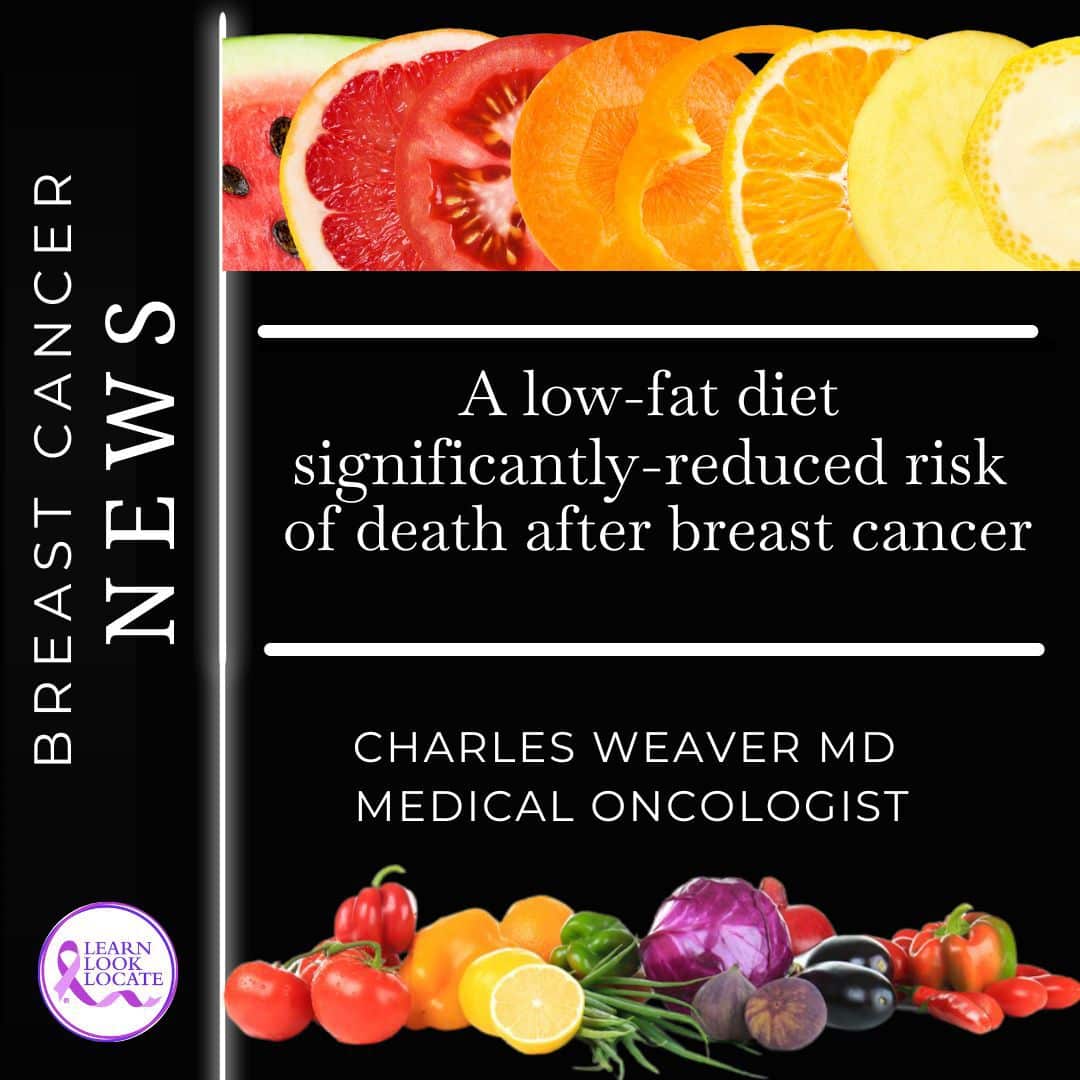
The Low-Fat Lifeline: A Dietary Shield Against Death by Breast Cancer
Recent findings from a City of Hope study underscore the benefits of a low-fat diet
Emerging research is highlighting the pivotal role of a healthy diet in battling breast cancer. A groundbreaking study led by the City of Hope has revealed that women maintaining a low-fat diet have a diminished risk of contracting breast cancer; and more significantly, if they are diagnosed, their chances of survival are notably higher.
The extensive study, rooted in the Women’s Health Initiative’s cancer prevention trial, involved a cohort of 48,835 postmenopausal women between the ages of 50 and 79. A subset of these women, approximately 19,600, was assigned a structured low-fat diet. Nutrition experts then guided them to curtail their daily fat intake to 20%, replacing it with a wide selection of fruits, vegetables, and grains. For comparison, another segment encompassing around 29,300 women, was given general nutritional advice but no enforced dietary alterations.
After rigorously following this diet for 8.5 years under consistent supervision from nutritionists, the revelations from nearly two decades of monitoring were nothing short of astounding:
- Real Dietary Changes: Transitioning to a low-fat diet led to a pronounced reduction in dietary fat for the participants. This change was accompanied by an average weight reduction of about 5 pounds.
- Breast Cancer Occurrence: From the expansive group of participants, 3,061 women were diagnosed with invasive breast cancer over an average span of 11.4 years. Remarkably, those who managed to lose weight (surpassing 5% of their original weight) were 12% less likely to develop breast cancer; a finding corroborated through a multivariable analysis.
- Survival Rates Post Diagnosis: A low-fat diet emerged not just as a preventive measure, but also as a lifesaver post-diagnosis. Those diagnosed with breast cancer and sticking to the low-fat diet had their mortality risk reduced by 22%. And an encouraging statistic emerged a decade after diagnosis: 82% of these women were still alive, compared to the 78% from the standard diet group.
Even though the study showed that a more pronounced weight loss, exceeding 15% of the original weight, is associated with a 37% dip in the risk of breast cancer – the more weight the women lost, the better their protective barrier against breast cancer. This finding is particularly helpful for much larger women, indicating that even modest weight reduction can significantly reduce the risk of death following a breast cancer diagnosis.
Conclusive Insights: The Power of Dietary Moderation
Upon evaluating the data, researchers can try to make certain correlations, and are currently conducting supplementary analyses to validate the following:
- Obesity seems to trigger an inflammatory response within a woman’s body. This reaction may inadvertently stimulate the growth of breast cancer cells.
- Adopting a low-fat diet appears to decrease estrogen levels and alleviate insulin resistance, both potentially important in curtailing breast cancer growth.
The main takeaway here is the principle of “moderation,” especially important for postmenopausal women who are diagnosed with early-stage breast cancer. These women from the study made a modest dietary change, reducing their fat intake from roughly 32% to around 25% of their total caloric consumption, which resulted in a weight loss of approximately 5 pounds.
So even minor dietary tweaks can have profoundly positive ramifications, underscoring that every little bit counts in the battle against breast cancer. A low-fat diet not only offers prevention but also increases survival rates, presenting a potential game-changer in breast cancer prevention and treatment.
(Article originally published on Cancer Connect. Modified on 10/2023 with author permission.)
References and Supplemental Reading:
Association of Low-Fat Dietary Pattern with Breast Cancer Overall Survival, by Rowan Chlebowski, M.D., Ph.D.; et al
Dr. Chlebowski is one of the most influential breast cancer researchers in the world. As a clinical breast oncologist with a Ph.D. in reproductive biology, he has a credentialed clinical and research interest in breast cancer therapy and prevention, menopausal hormone therapy influences on cancer and chronic disease, and lifestyle influences on breast cancer incidence and outcome. Please follow the link to learn more and explore his work.
About Dr. C.H. Weaver, M.D.
Dr. Charles Weaver is a Medical Oncologist, and the founder and editor of CancerConnect. After training at University of Pennsylvania, Fred Hutchinson Cancer Center and The National Institute of Health Dr Weaver founded CancerConnect with the goal of providing information and support to cancer patients and their caregivers. He has published in the New England Journal of Medicine, Blood, and Journal of Clinical Oncology and has authored over 9000 articles for patients on the management of cancer.
